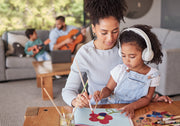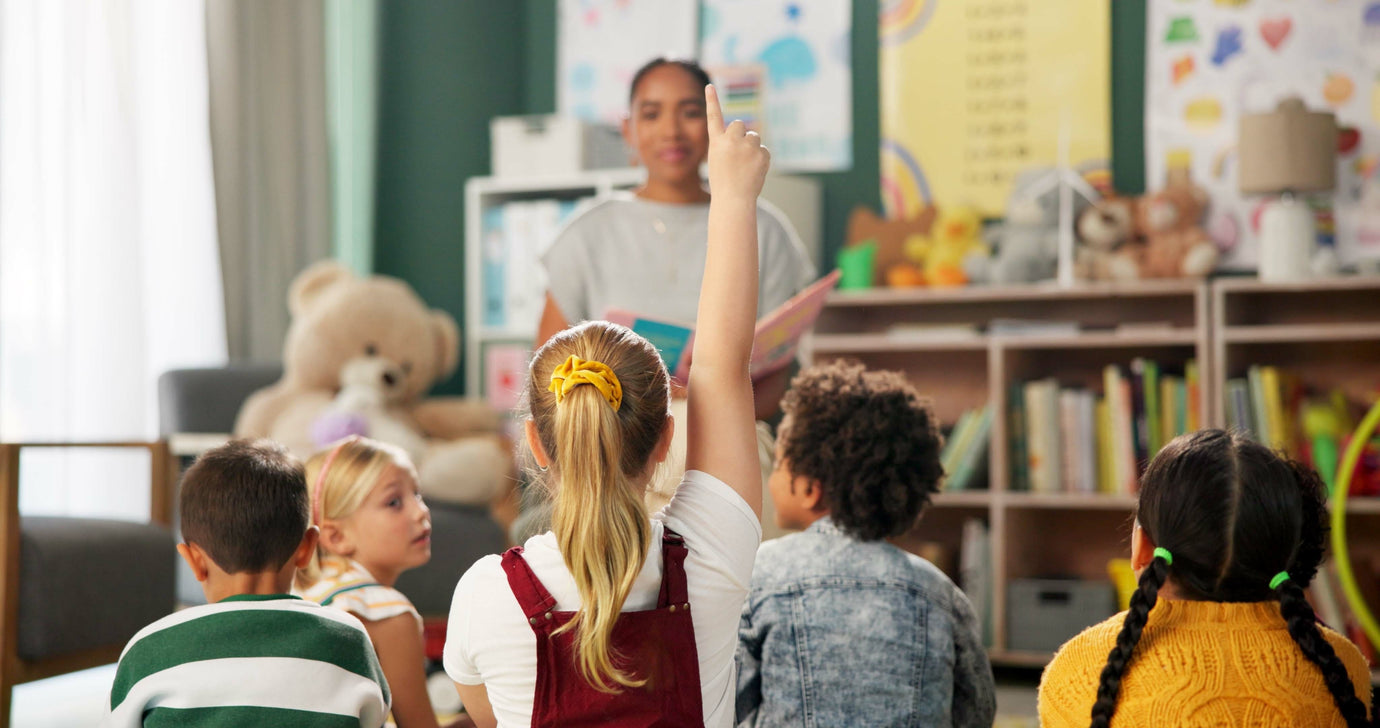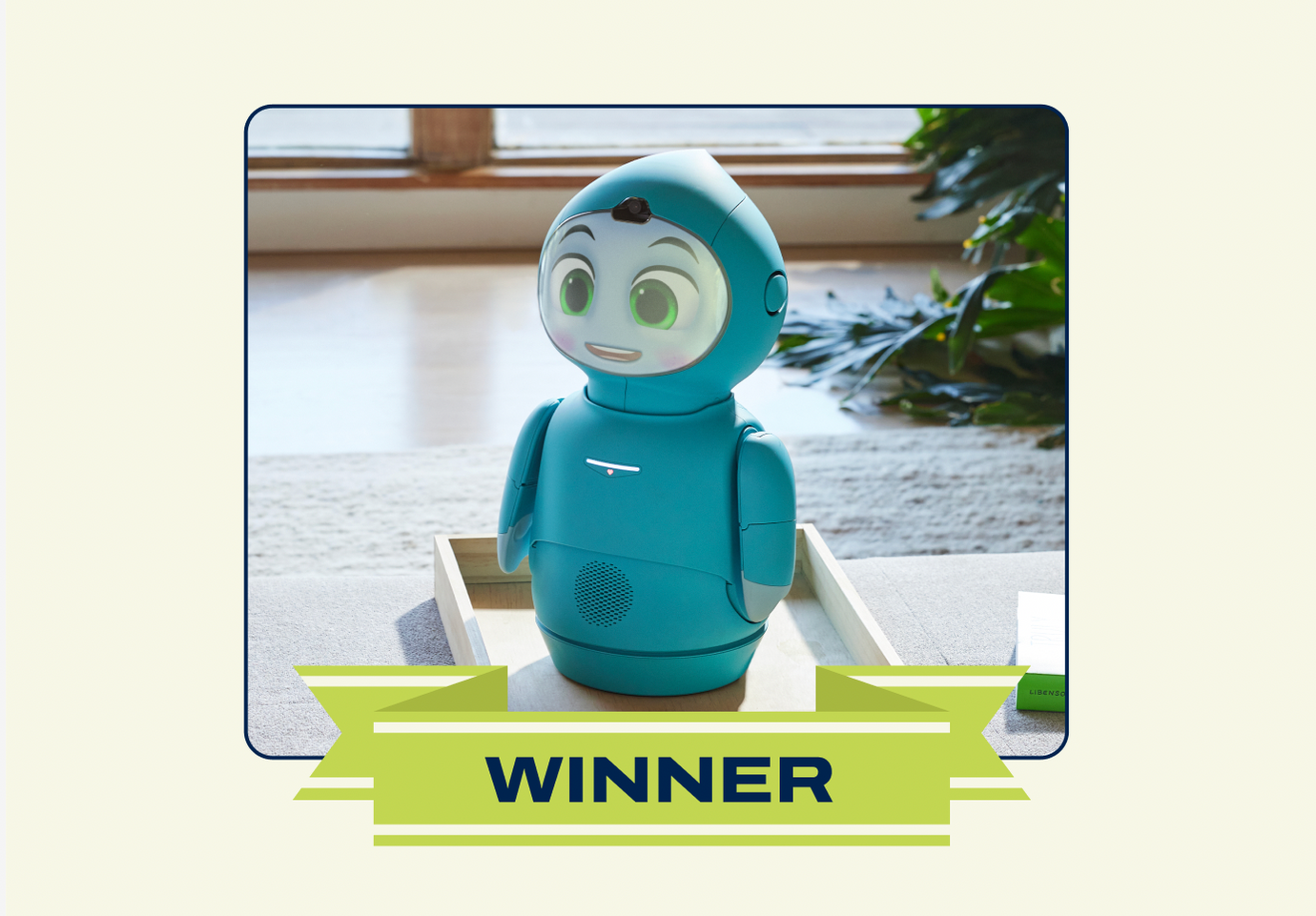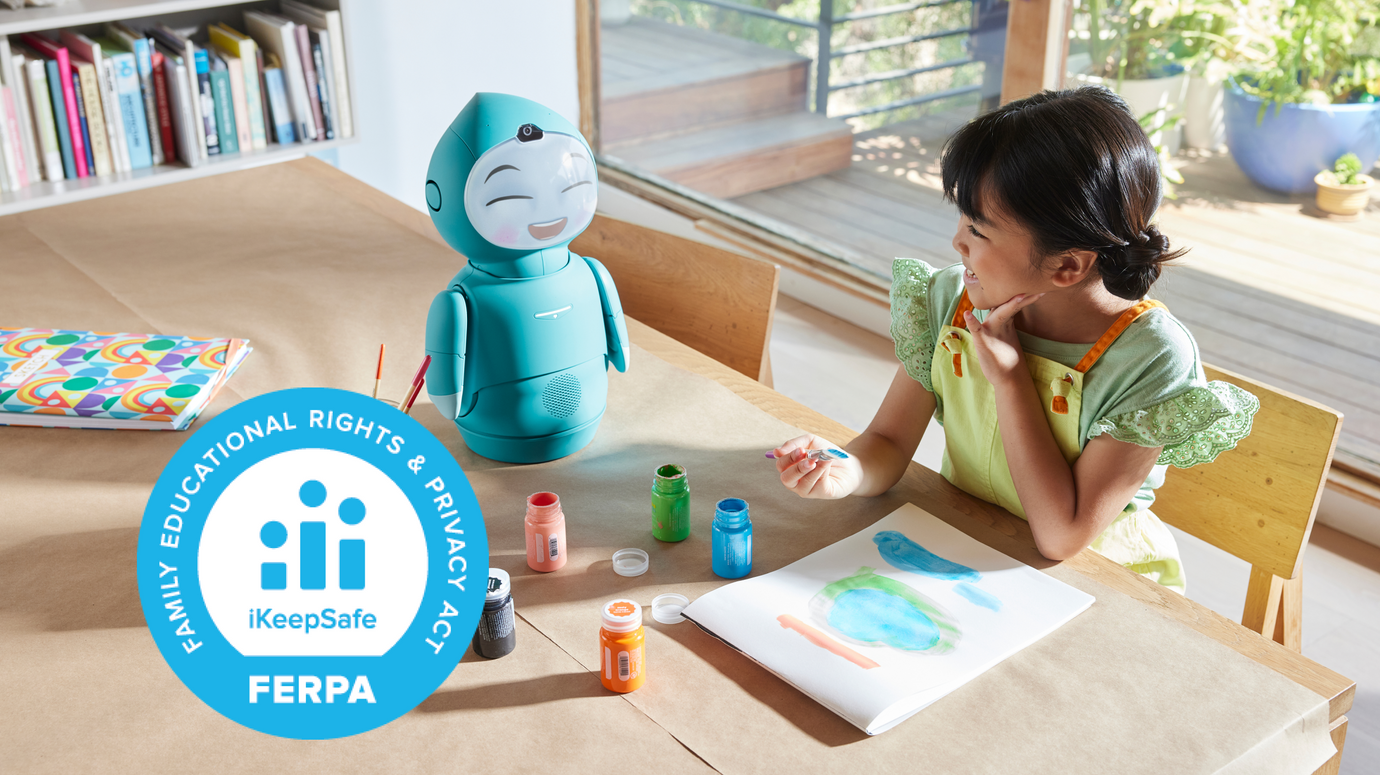The Importance of Play for Kids' Development
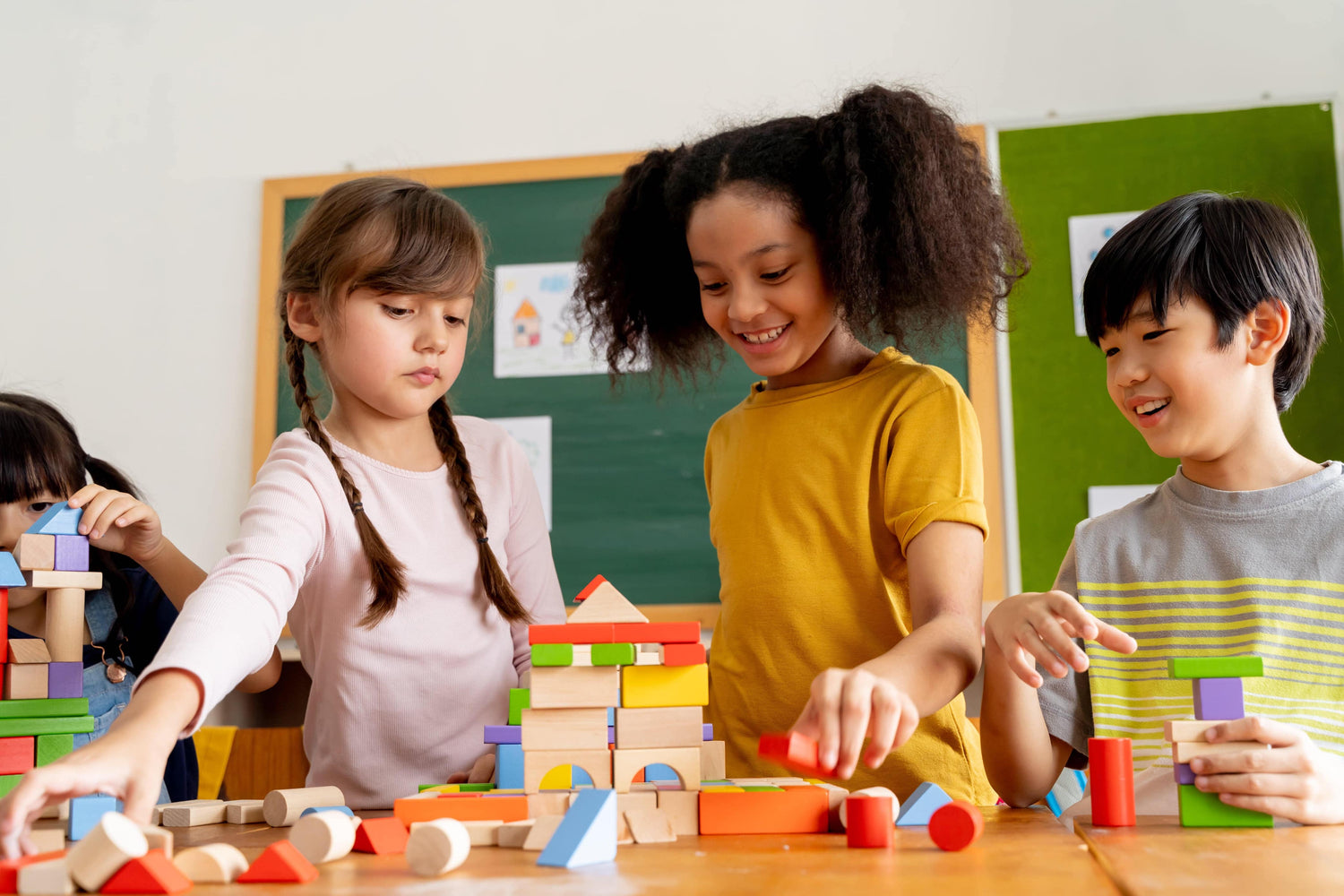
Why Play is Vital for Kids' Development
Play comes naturally to kids – and it’s endlessly fun. But don’t let that effortlessness fool you. Play is the ultimate work for kids – and it serves a vital purpose in their development. Through play, kids explore, discover, test, and refine skills as they learn about themselves, about interacting with others, and about their place in the world. But because play seems so natural, most of us don’t spend much time thinking about just how all that learning happens. Here follows a meandering guide through some of the most interesting ways to consider the important work that kids are doing while they’re playing. As you read, think about what you notice the kids in your life doing.
The Stages of Play in Early Childhood
The sociologist Mildred Parten defined six stages of play, beginning with solitary play in infancy and ending with the complex and richly imaginative play typically seen in the preschool years. At each stage, kids develop essential skills.
The Mildred Parten six stages of play are:
- Unoccupied Play
- Solitary Play
- Onlooker Stage
- Parallel Play
- Associative Stage
- Cooperative Play
Unoccupied Play in Early Development
The first stage is called unoccupied play. Picture a baby delighting in shaking a rattle, watching their socks fall off as they kick their legs, repeatedly dropping their spoon while sitting in their high chair, or splashing their hands in water. It’s unorganized – and though it may not look like what we envision when we think of play, it's a vitally important stage. It is through these activities that babies experiment with self control, what their bodies can do and how they can interact with objects and people around them.
Solitary Play for Childhood Development
The next stage is called solitary play and starts to look a bit more intentional. Kids entertain themselves, often with objects, as they continue to experiment with what they can do and how they can interact with the world around them. The key here though is that – as the name suggests – they’re playing on their own. That is, they’re not quite ready to navigate the complexity involved in interacting with others. Another solitary play stage is called the onlooker stage. Here, rather than playing themselves, kids watch others play. Don’t let their lack of activity fool you: Kids are still busy at work, learning by watching what others are doing and gathering important information about social rules, ways of using materials, and more.
Children Learning Through Parallel Play
Now picture that classic scene of two 2-year-olds in a room together. They’re each deep in their own world, interacting with toys. While they’re quietly but acutely aware of the other, there’s no actual interaction between them. Welcome to the parallel play stage. Figuring out how to navigate complicated social interactions is quite difficult and takes some time – even adults don’t always have it all figured out! Think of parallel play as a preparation phase for social interaction in which kids experiment with boundaries, sharing, and verbal and non verbal communication.
The Associative Stage Learning Through Play
Next, in the associative stage – usually appearing around 3-5 years of age – kids start interacting with each other, but they’re not exactly playing together just yet. That is, kids talk to each other, share what they’re doing, and may even be sharing the same toys. But each kid is moving on their own path. Think about two kids playing with toy cars, though in one kid’s world, the cars are taking passengers around a city running errands whereas for the other kid, they’re on a formula 1 race track. In this stage, kids work on communication, sharing, problem solving, and developing friendships.
Cooperative Play in Early Childhood Education
Finally, at around 4-6 years of age, kids get knee deep in cooperative play. Here’s where kids interact with each other engaging in the same activity with the same ideas, context, and goals. Agreeing on what those ideas and goals are will inevitably invite conflict. In fact learning to navigate that conflict is just one of the integral functions of this kind of play.
Types of Structured and Unstructured Play in Early Childhood Development
Stages are one way to think about how the way kids play changes as they grow. Another way to think about play is to consider what they’re actually doing as they play. Guess what? Researchers have multiple classification systems for that as well! Here are some of the most well known and interesting ones. Which kinds of play do the kids in your life prefer?
Learning Through Physical Play
Any playful activity that engages kids to move their bodies is considered physical play. This can take the form of sports, dance, rough and tumble wrestling, or simply hopping around the room like a bunny. Not only do kids get exercise – always a good thing! – but they’re also learning about coordination and fine tuning their motor skills, as well as building muscle and strengthening bone structure.
Exploratory Play in Early Childhood Development
Exploratory play consists of open-ended opportunities to experience the world. Kids mash their hands in finger paint, roll around in the sand, shake a tambourine with all their might, or climb high on the play structure at the playground – just to see what it all feels like. This kind of play encourages kids to learn about what effects they can have on the world around them as they develop body awareness, motor skills, cognitive processing, and self confidence.
Pretend, Fantasy, and Sociodramatic Play During Child Development
One of those great magical skills kids have is the ability to be driven entirely by their imagination. Enter the world of pretend, or fantasy, play, which starts around two years of age and can persist throughout childhood. Pretend play often starts with kids using objects in creative ways, such as when they hold a toy banana to their head and pretend it’s a telephone. It may seem simple, but what’s going on for that 2-year-old as they chatter away to a plastic banana is anything but. Kids are working on symbolic representation, or using one object to stand for another. And if you think about how many symbols there are in the world – you’re looking at a bunch of them right now! – you’ll understand how critical it is to master the concept. Kids also practice problem solving, language and social skills, expressing emotions, and stretching their creativity.
Another pervasive and significant form of pretend play is sociodramatic play. This is when kids take on different roles and act out pretend scenarios, like going to the doctor, being a teacher in a classroom, or hosting a tea party. This kind of play is incredibly rich and allows kids to work on language skills, self identity (through trying on different roles), getting along with others (through navigating play, negotiation, taking turns, resolving conflicts, and experimenting with relating to others from different perspectives), and practicing societal norms (for example, what happens when you go to a restaurant?).
Developmental Building Blocks Through Constructive Play
How about when kids stack blocks to make a castle, paint a picture, build a blanket fort, or craft objects from clay? Yup, there’s a name for that too: constructive play. Kids naturally explore objects and how they can use those objects to make something cool. Constructive play is goal-oriented – in other words, kids play with a specific goal in mind – and it’s not a leap to see how this kind of play helps them practice cognitive skills like planning, execution, problem solving as well as motor skills like hand eye coordination. Does this remind anyone else of STEAM learning? Use math, engineering, materials, creativity, and logic to build something great like a robot, a bridge, or whatever else you can dream up!
Rule and Structured Play for Learning
Finally, there’s rule based play, which is just what it sounds like. Games with clear rules like sports, group games like duck duck goose or capture the flag, or board or card games fall into this category. This kind of play helps kids practice playing within a community structure, follow rules, take turns, win and lose gracefully, and experiment with concepts of fairness.

